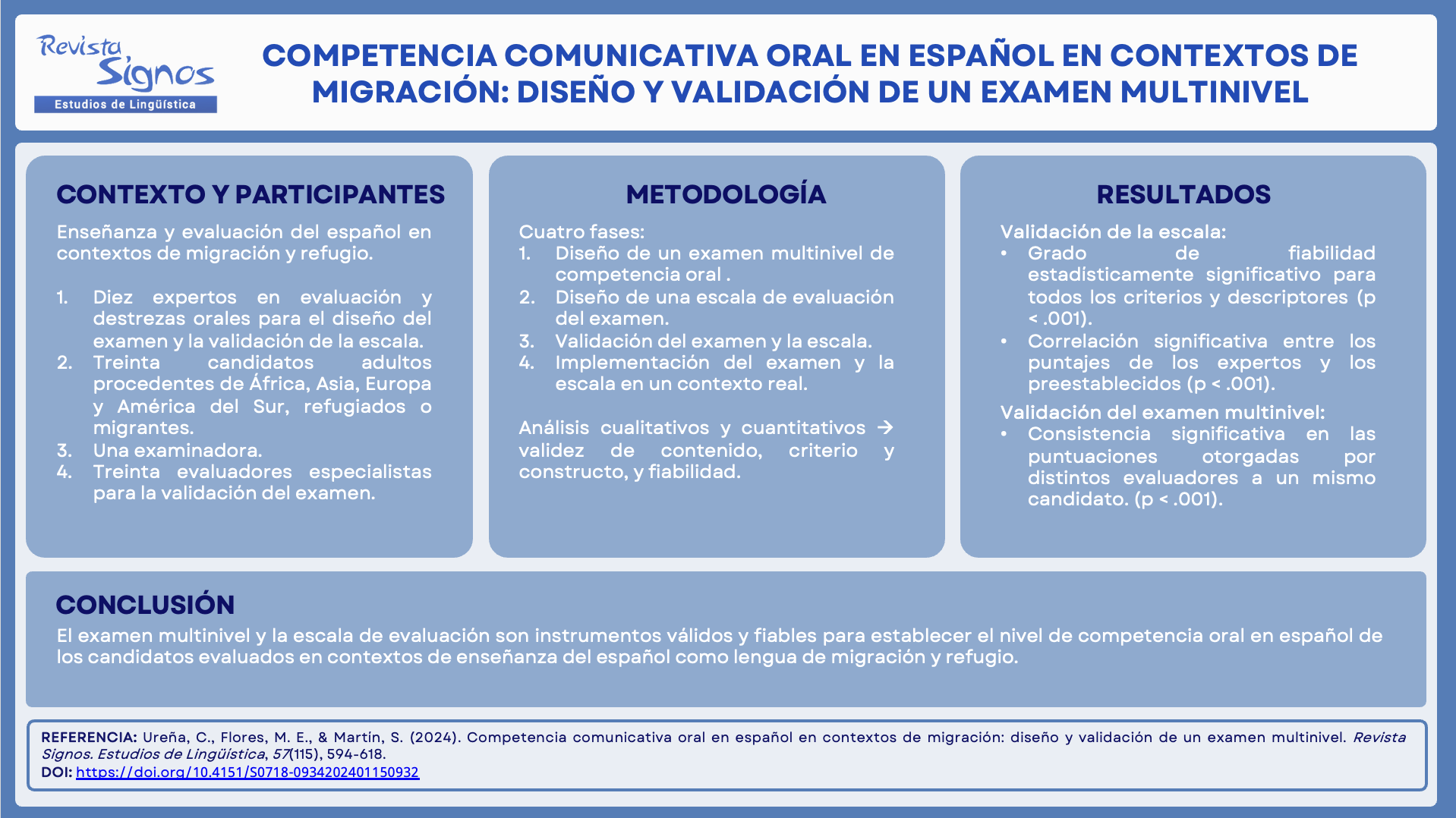Spanish oral communicative competence in migration contexts
design and validation of a multilevel exam
DOI:
https://doi.org/10.4151/S0718-0934202401150932Keywords:
oral skills, communicative competence, Spanish language of migrants and refugees, assessment, level testAbstract
Assessment is a key part in the process of teaching and learning a foreign or additional language. In the field of Spanish as a language of migration, there is a need for a level test which fits the specific needs of migrant and refugee learners and allows teachers to assess their oral skills in Spanish. This paper describes the design and empirical validation of a multilevel test in which 30 participants and 40 experts in foreign language assessment have participated. Results reveal that both the test and the rubric are valid and reliable assessment tools as shown by statistically significant data. This test is expected to be available for teachers and volunteers who teach Spanish to migrants and refugees.

Published
How to Cite
Issue
Section
License
Copyright (c) 2024 Revista Signos. Estudios de Lingüística

This work is licensed under a Creative Commons Attribution 4.0 International License.
Copyright agreement:
Authors who have a manuscript accepted for publication in this journal agree to the following terms:
Authors will retain their copyright and grant the journal the right of first publication of their work by means of this copyright agreement document, which is subject to the Creative Commons Acknowledgment License that allows third parties to share the work provided that its author and first publication in this journal are indicated.
Authors may adopt other non-exclusive license agreements for distribution of the published version of the work (e.g., depositing it in an institutional repository or publishing it in a monographic volume) as long as the initial publication in this journal is indicated.
Authors are allowed and encouraged to disseminate their work via the internet (e.g., in institutional publications or on their website) before and during the submission process, which can lead to interesting exchanges and increase citations of the published work (read more here).


